'I trained for a 1,000-mile cycle on chemotherapy'
- Published
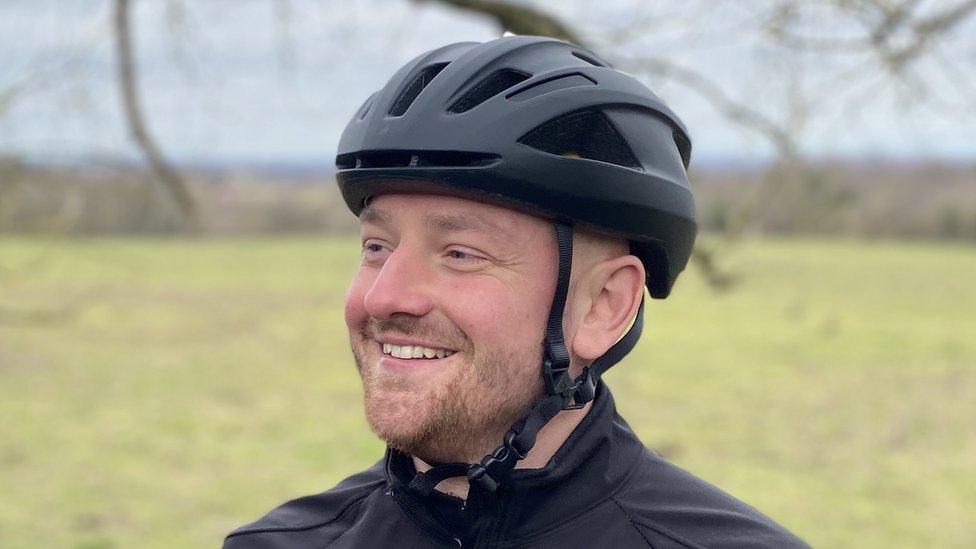
Gaz Emmerson was diagnosed with a rare form of cancer in 2014. Now with a terminal diagnosis, he's cycling 1,000 miles in 13 days to raise money and awareness for others with his condition - having trained during chemotherapy.
During the treatment he would wake up in the morning and swallow a handful of anti-sickness tablets, then cycle to chemo, Gaz tells the BBC.
"I would have about an hour or an hour-and-a-half of treatment and then cycle myself home - either via a 20-mile round trip or a 30-mile one, depending on how I felt.
"One of the biggest side effects is fatigue. After a week of chemo and cycling, it makes you tired.
"But the determination of trying to get through it and finish the job pushed me on."
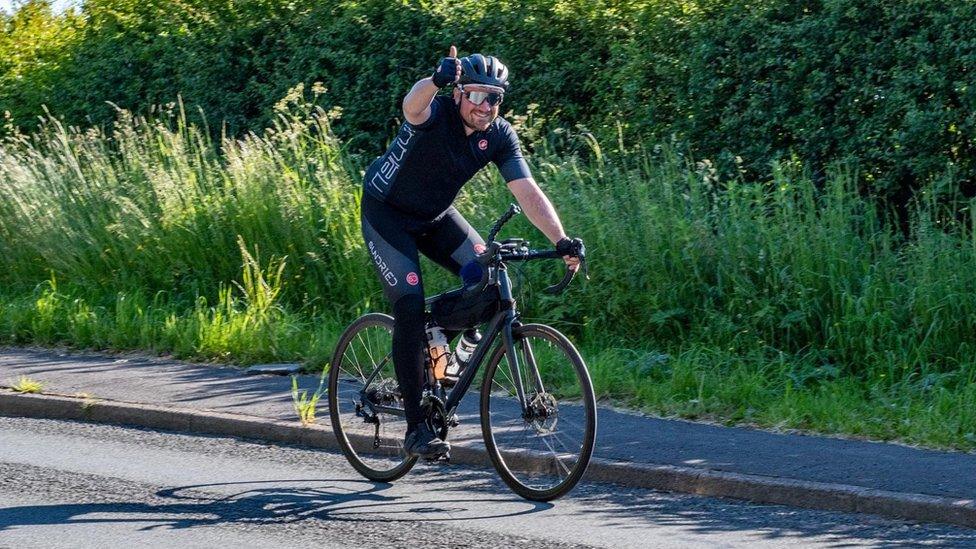
Gaz Emmerson is cycling from Land's End to John O'Groats to raise money for others with sarcoma cancers
Gaz, 28, from Shrewsbury, was diagnosed with Ewing Sarcoma - a cancer that affects bones or the tissue around bones, mainly found in young people - in 2014.
A fit, active, 21-year-old, he initially visited the GP with lower back pain he believed was caused by the gym. It turned out to be a tumour the size of two tennis balls.
Gaz has been in remission three times, but in November 2020 his diagnosis became terminal, with the cancer returning in his lungs, lymph nodes and brain.
He has undergone brain surgery to remove the biggest tumour, and has been receiving chemotherapy for his lungs.
However, he's received the "devastating" news that this will stop being effective at some point in the near future, as the cancer becomes resistant to treatment.
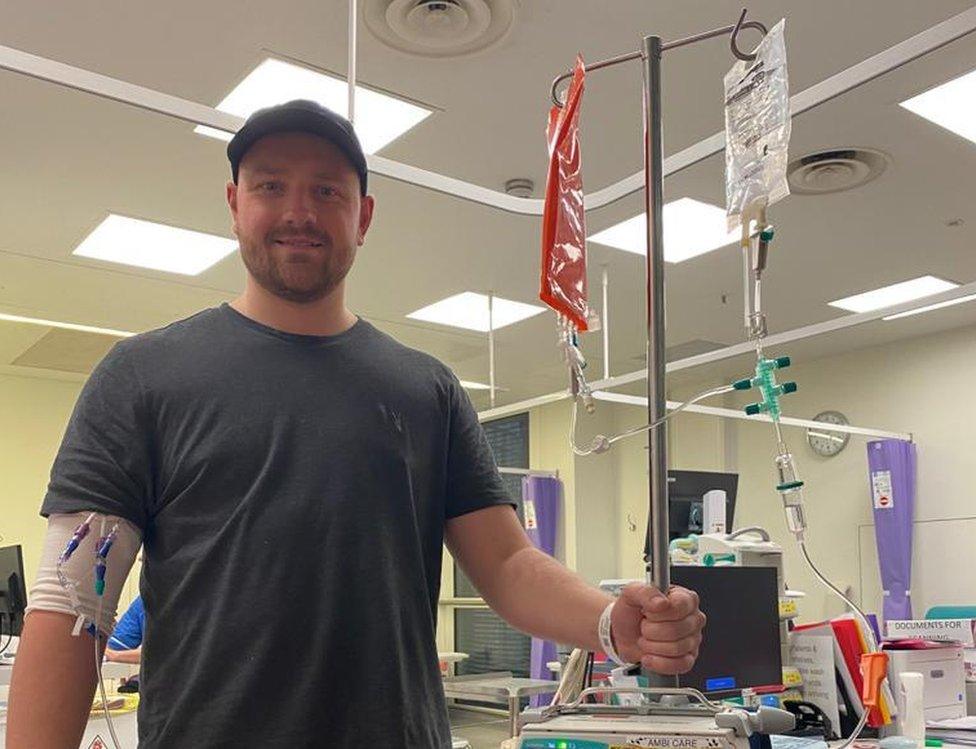
Gaz on the UCLH chemotherapy ward in January 2019
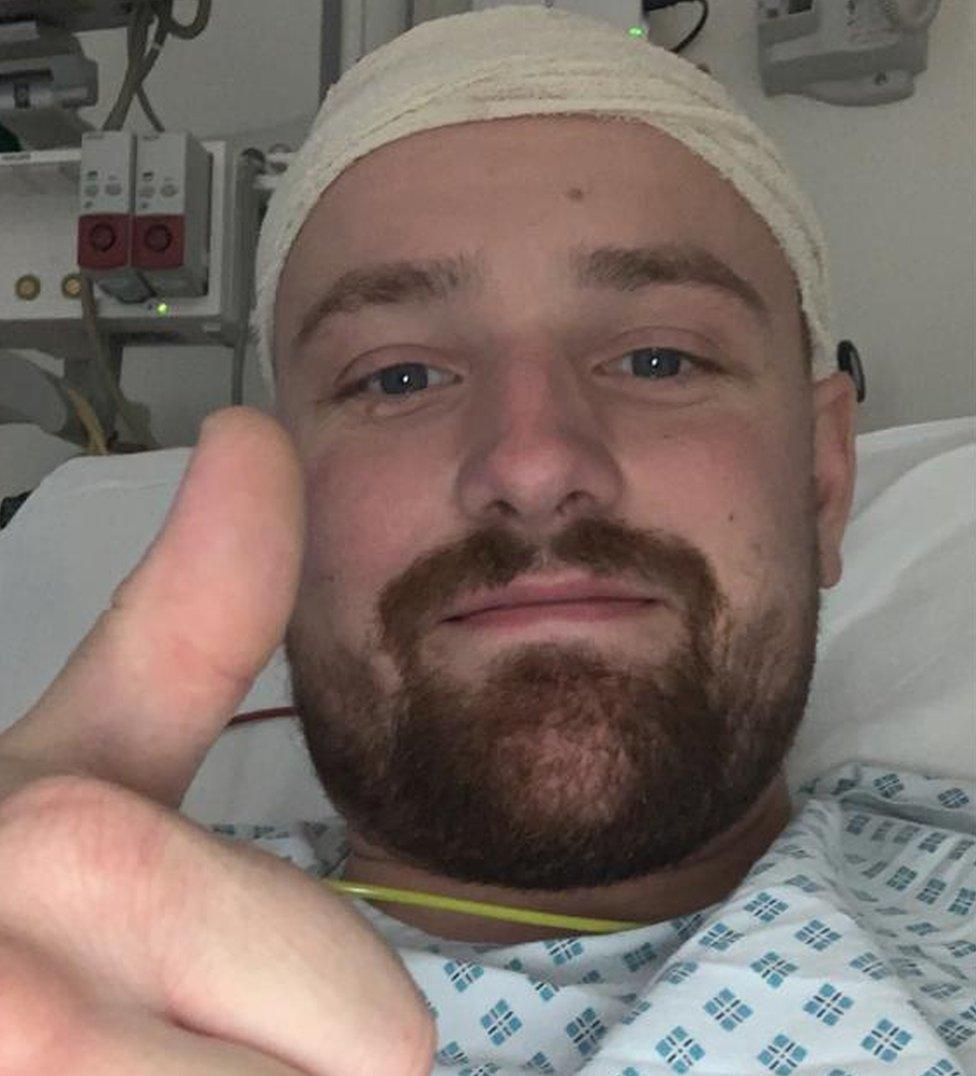
Recovering from brain surgery at the National Hospital for Neurology and Neurosurgery, following a brain bleed in December 2020
Despite this, Gaz set out on 8 June to take on the mammoth fitness challenge of cycling the length of Great Britain from Land's End, in western Cornwall, England, to John O'Groats, in the far north of Scotland - on a break between chemo cycles.
And he has so far raised more than £90,000 of an £100,000 target for charity Sarcoma UK - fulfilling a "bucket list" goal of fundraising for others in his situation.
"The money is not going to help me but it will help young teens and adults that are going through this in years to come," he says.
Allow Instagram content?
This article contains content provided by Instagram. We ask for your permission before anything is loaded, as they may be using cookies and other technologies. You may want to read Meta’s Instagram cookie policy, external and privacy policy, external before accepting. To view this content choose ‘accept and continue’.
Joined by his fiancée, Zoe Homer, his dad, Andy Emmerson, and several close friends, Gaz tackled the challenging hills of Devon and Cornwall "without too much difficulty" and is now nearing the finish line in Scotland.
His main complaint so far has been a knee injury but he says he's feeling fit enough to tackle the climbs and is positive "the most difficult days are behind us".
He admits the exhaustion has been "seriously tough" at times, having only been out of chemo for a few weeks.
"I'm not recovering and bouncing back as quickly as the rest of the team but we're halfway through now and I'm still feeling strong so I'm sure as hell I'm going to finish it."
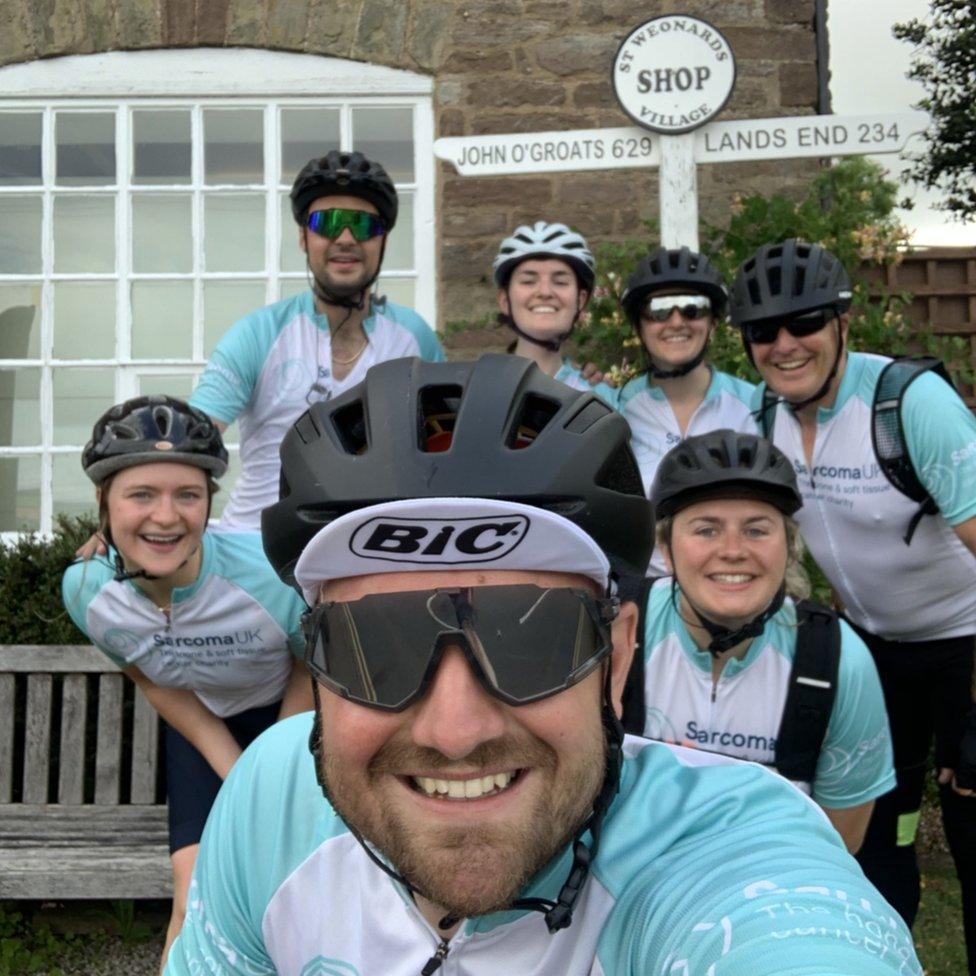
Team Gaz Emmerson includes his fiancée Zoe Homer, his dad Andy Emmerson, and close friends Zoe Anastasiou, Emily Swan, Eliza Lorimer and Tom Lorimer
Spectators including family and friends have provided a welcome boost during the ride, along with social media - where strangers are following Gaz's journey.
On Instagram, he aims to show people that their illness does not have to be "the be all and end all".
"I've always said that I will never let cancer define my life or me as a person," he says.
'Listen to your body'
Gaz is keen to stress that exercise "just isn't a realistic possibility for some people who are knocked for six" by chemo.
"If you can, then absolutely, but listen to your body and take it at your own pace."
Nevertheless, he has already inspired many others, who tell him that he's helped them "even with the most basic tasks such as going out and seeing friends".
For Gaz, the training gave him something to look forward to throughout the pandemic, which has limited the number of people allowed to visit him during chemo or hospital stays.
"Being able to meet up with friends and go on rides has given me a bit of purpose in life," he says.
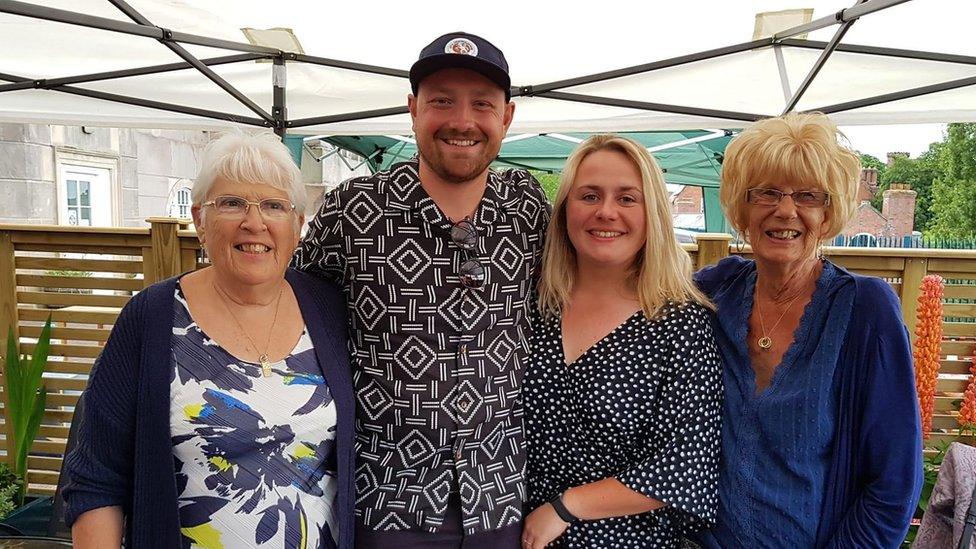
Gaz with Zoe, centre right, who says she is "so proud of him and the impact he is making". They are joined by Gaz's nan, Margaret Allen, left, Zoe's grandma, Glenys Simpson, right - on 11 June in Gaz's hometown of Shrewsbury
"Some people just feel like they want to shut themselves away from people and I've found that can be the worst thing you can do.
"I've found I want to carry on my life."
And, in keeping with that mindset, the first item on his bucket list is not far from being ticked off.
Gaz and Zoe are due to be married on 3 July - within days of crossing the finish line.

Should I exercise during chemotherapy?
Two experts give their advice on taking on a physical challenge alongside chemotherapy.
Caroline Geraghty, specialist cancer nurse at Cancer Research UK says, chemo or not, cycling from Lands End to John O'Groats is a big challenge requiring "an outstanding athlete".
She says doing something like this wouldn't be possible for most people but anyone who wants to know if they can exercise should "check it out with their own cancer team, let them know what you want to do and ask is it safe?".
She adds: "I think for the vast majority undergoing chemo or any cancer treatment it's good to be agile and keep up some activity, some exercise, if you want to.
"There isn't quite enough evidence to say if it can prolong life but it can improve your wellbeing and perk you up.
"People have told us it can help cope with symptoms or might reduce some symptoms."
That said, she stresses, no one should feel guilty if they are not exercising.
Quality of life
Prof Greg Whyte, a leading sports scientist, says Gaz's challenge "should be an inspiration to us all but particularly those with cancer", adding that the main takeaway should be: "He is showing what can be done."
While Prof Whyte acknowledges a 1,000-mile cycling challenge is not for everyone, he says exercise can have a very positive effect on quality of life during chemo and can be beneficial for rehabilitation after treatments such as radiotherapy.
"The great thing about exercise is it always makes you feel better and provides a very positive goal in what can sometimes feel like a very negative environment," he says.
